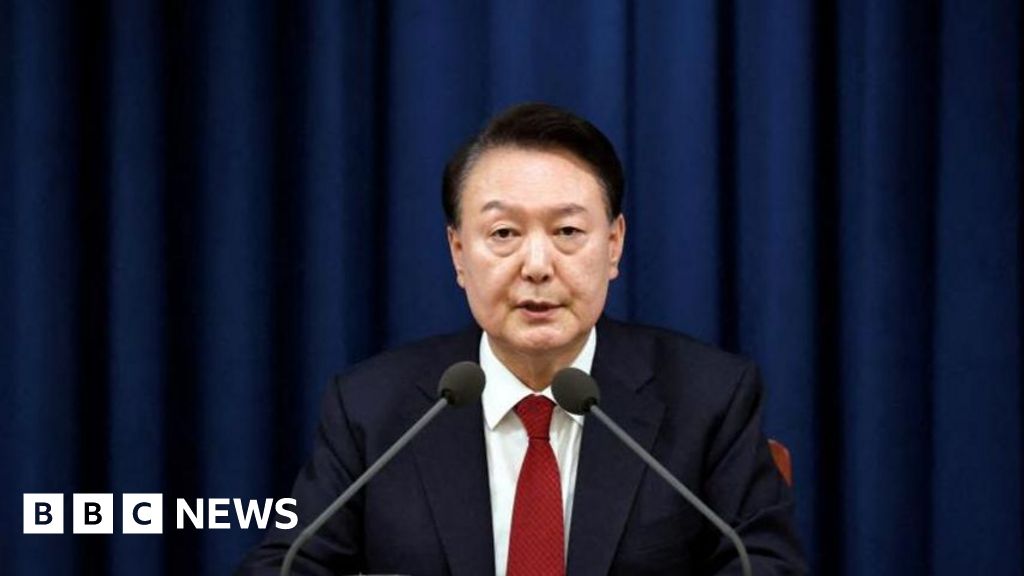His declaration was a chilling reminder of a period many in South Korea have tried to forget. On television, newsreaders were seen shaking.
In 1980, when pro-democracy activists, many of them students, took to the streets of the city of Gwangju to protest at martial law, the army responded with violence and around 200 people were killed.
While martial law lasted three years – 1979 to 1981 – there had been military rule for decades before, and it continued until 1987. And in those years South Korea was rife with suspicion, when anti-government activists were dubbed Communist spies and arrested or killed.
Yet, during his election campaign Yoon praised authoritarian general Chun Doo-hwan and said he had managed government affairs well – except for his suppression of pro-democracy activists.
He was later forced to apologise and said he “certainly did not defend or praise Chun’s government”.
But it does provide some insight into the president’s view of what constitutes power.
There have been rumours in South Korean political circles for months that Yoon was considering imposing martial law. In September, opposition leaders and party members declared it was a possibility. Most dismissed it as too extreme an option.
But he may well have been driven by something more: the fear of prosecution.
Park Geun-hye, the country’s first female leader, was jailed after being found guilty of abuse of power and corruption. Her predecessor, Lee Myung-bak, was investigated over allegations he was involved in stock price manipulation. He was sentenced to 17 years in prison for corruption and bribery in 2020.
Another former president, Roh Moo-hyun, took his own life in 2009 while under investigation for allegedly receiving millions in bribes.
In South Korea, prosecutions have almost become a political tool – a threat for the opposition to wield. It may partly explain why President Yoon took such drastic action.
Whatever his motives, Yoon’s career will struggle to recover from this. He is also facing calls to resign, and some local media reported that members of his own People Power Party were discussing expelling him from the party.
South Korea is a stable democracy – but it is a noisy one. And it refused to accept another authoritarian diktat.
President Yoon will now face the judgement of a parliament and a people after they rejected the most serious challenge to the country’s democracy since the 1980s.

